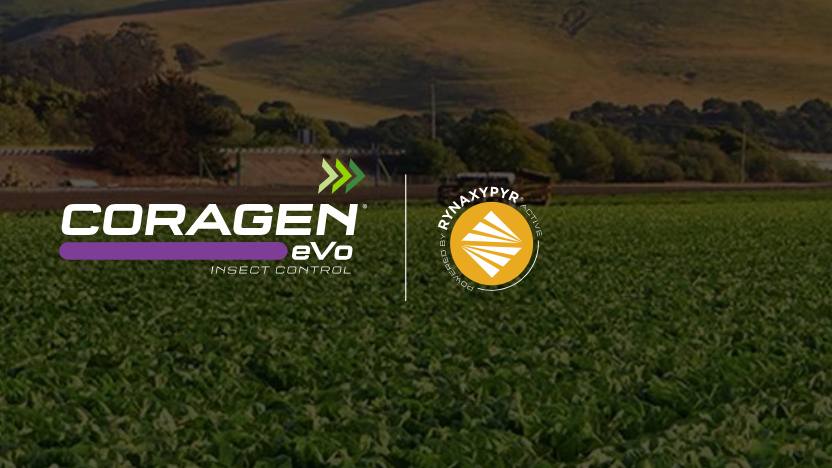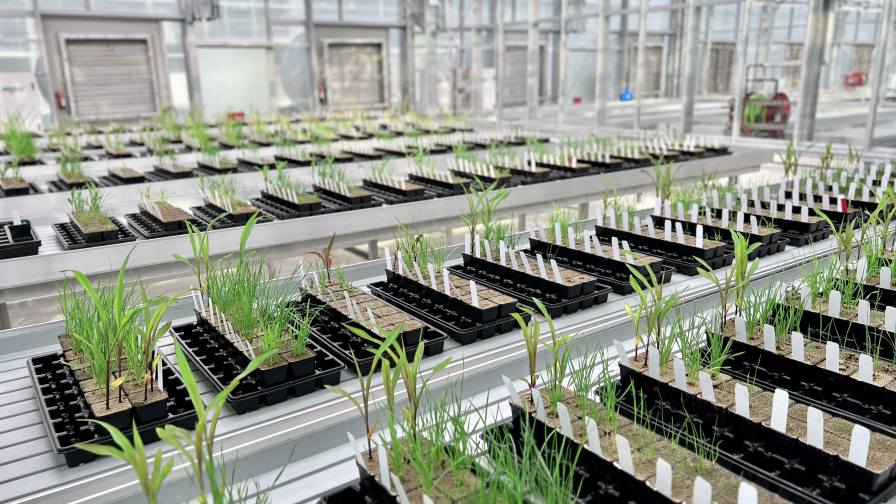Staphyt, Eurofins, and Reach24H Discuss Latest Trends in Contract Research Organization and Regulations Update
 AgriBusiness Global LIVE! invited three experts to serve as panel speakers for the Contract Research Organizations (CROs) and Regulation Update on June 14, 2023. Vincent Dreze, Managing Director from Eurofins Agroscience Services; Garth Drury, Principal Consultant from Staphyt; and Ivy Zhang, Senior Technical Manager, REACH24H Consulting Group, discussed trends for CROs for the next three to five years and important changes in regulations for Brazil, China, European Union (EU), India, and the U.S. Here are some questions the webinar audience posed to our experts.
AgriBusiness Global LIVE! invited three experts to serve as panel speakers for the Contract Research Organizations (CROs) and Regulation Update on June 14, 2023. Vincent Dreze, Managing Director from Eurofins Agroscience Services; Garth Drury, Principal Consultant from Staphyt; and Ivy Zhang, Senior Technical Manager, REACH24H Consulting Group, discussed trends for CROs for the next three to five years and important changes in regulations for Brazil, China, European Union (EU), India, and the U.S. Here are some questions the webinar audience posed to our experts.
ABG: How do you check the overall reputation and track record of a CRO for a specific study if you are engaging with them for the first time and no other industry members are sharing the information? How do you get this data?

Vincent Dreze, Managing Director, Eurofins Agroscience Services
VD: CROs with a sound reputation are the ones who are often well connected to industry associations such as CropLife Europe, CropLife International, International Biocontrol Manufacturers’ Association, and European Biostimulants Industry Council. They are actively participating in working groups dealing with technical and regulatory issues. They are also the ones contributing to the establishment and validation of methodologies and testing to be used in a regulatory framework.
ABG: In pesticide field development, it’s important to know the “how, when, and where” when the product works well; but also “how, when, and where” when it does not. I get concerned when results are too good. How might we interact and challenge a CRO to address this? How should a CRO be able to assess our concerns about a potential bias in data collection?
VD: Field trials are conducted according to good experimental practice (GEP), for instance, following European and Mediterranean Plant Protection Organization (EPPO) guidance. Under those conditions, there is less room for potential interpretation. Results are supposed to be relevant no matter the actual efficacy. There should not be any concern about results being too good if performed according to established standards. For biologicals, it is very often that results are not good enough according to standards, but these are standards defined for conventional chemicals. Also, if we want to reach the same efficacy level compared to conventional chemistry, biologicals will need to be applied in programs so that results can approach as closely as possible to the expected efficacy level.

Garth Drury, Principal Consultant, Staphyt
GD: Most GEP trials in Europe are now assessed using in-field information technology tools (ARM, SCOUT, etc.) that permit the sponsor and client live access to the assessments and raw data through a secure portal, before the completion of the trial reports. In this way, the sponsor has oversight and control over the actively developing efficacy trials dataset, for the entirety of the project.
ABG: In the U.S., the National Alliance of Independent Crop Consultants (NAICC), has many CROs that are members. This is a great resource for discovering a new CRO. Is there something similar in other countries?
GD: Yes. There are various directories and catalogues of bone fide contractors in Europe whether good laboratory practice (GLP) laboratories, GEP certified field trials organizations or regulatory consultants, for example the Global Service Providers Guide, Chemical Watch, 2022. Nonetheless, a second-level due-diligence exercise is recommended to refine the list of suitable candidate CROs.
ABG: Is there extra credibility in the quality of study and data generated if the CRO conducts a non-GLP study (field and analytics) under a GLP-certified facility and GLP-trained staffs, as opposed to a non-GLP study performed by CROs with no experience in GLP?
VD: If I had to perform a non-GLP study, I would definitely go with a CRO having GLP experience. Be aware that in the EU applicants (and laboratories) must notify information on studies commissioned or carried out to support a future application to European Food Safety Authority (EFSA). Therefore, it is critical that the studies are designed and performed properly. I would also recommend that the applicant (if not having the experience of commissioning a study and supervising it in house) is contracting a regulatory consultant for the study monitoring (validation of protocol, reports, communication with study directors, etc.), then GLP is important, but more important is the regulatory acceptability of the study.
GD: GLP accreditation does not automatically mean that the study will be accepted by the authority nor that the laboratory has a high level of experience on the topic. This is why further verifications should be done on CRO selection in addition to GLP accreditation.
ABG: What about global harmonization of regulations? Is there any movement in that direction?
VD: Even within a region, for example, North American Free Trade Agreement (NAFTA), EU/European Economic Area/UK, Asia-Pacific Trade Agreement (APTA), harmonization is difficult to reach. As Garth mentioned, there is already harmonization in the way data and dossiers are structured and presented (The Organization for Economic Cooperation and Development (OECD) format, International Uniform Chemical Information Database (IUCLID) for instance), but the issue is more about how the data is being assessed. This was the aim of the EU Regulation 1107/2009, which was supposed to streamline registration assessment processes across Europe. But still today, the results are far from the initial expectations and registration processes are still too lengthy especially considering the ambitious goals of the EU Commission concerning the reduction in pesticides use. With the current system in place, alternatives to chemicals will not reach the market on time.
GD: In the EU, with the current system in place, biocontrol alternatives to conventional chemicals still take a significantly longer time to reach the market than in other regions. Nonetheless, a core dossier approach can be taken for global projects, with suitable refinement and additions provided at a regional and national level.
ABG: For a pesticide to be registered in China, does it need to be authorized by the European Commission?

Ivy Zhang, Senior Technical Manager, REACH24H Consulting Group
IZ: The registration of a mixture in European is not a must requirement for the mixture to be registered in China. As long as a mixture can fulfill the pesticide registration requirements in China, it can be registered. Detailed pesticide registration requirements can be found in the Regulation of Pesticide Administration and its related documents.
ABG: What are the prospects for biocontrol agents to effectively cater the crop segments that are currently catered by “candidates for substitution” in EU?
VD: I would like here to refer specifically to Horizon Europe Framework Programme (HORIZON).
In this context, Eurofins are contributing to the preparation of several proposals in collaboration with start-ups, academia, regenerative thermal oxidizers (RTOs), and manufacturers to support innovation in reaching a technology readiness level that will be acceptable for the innovations to get to market and replace candidates for substitution. The collaborative aspect of the work combining the best experts in class and financially supported by the EU is a great accelerator for product introduction.
GD: Overall, biocontrol and biostimulant product innovation is advancing well but — as has been mentioned above and elsewhere — approval times in the EU are currently slowing more extensive use. The extension of their use in Brazil to broad-acre feed crops, shows the near-future potential for biocontrol in other key agricultural regions. Nevertheless, care is needed in considering 1:1 substitution of a conventional product (including those designated as “candidates for substitution” in the EU, which is mostly based on intrinsic hazard (including classification), not on approved uses with appropriate protective mitigation) with a biocontrol solution, as the level of control may not be acceptable or consistent. Extensive trials have shown that a tailored integrated pest management (IPM) program combining both conventional and biocontrol solutions is typically optimal for crop production, for example using biocontrol products for the last treatments for a given crop before harvest to reduce residues well within the current maximum residue levels (MRLs). Local pest, disease and weed control needs vary widely across the EU and season to season. This means that — along with required resistance control measures — a mixture of both conventional and biocontrol tools will be needed into the foreseeable future.
ABG: How is the process for formalizing a clear and official definition of biocontrol products progressing in Europe?
VD: An EU definition of biological control that encompasses the four categories of biocontrol has been included in the Sustainable Use Regulation. These categories are invertebrate biocontrol agents, microbials, semiochemicals, and natural substances.
GD: The current draft of the SUR (22/06/2022) states that biological control means the control of organisms harmful to plants or plant products using natural means of biological origin or substances identical to them, such as microorganisms, semiochemicals, extracts from plant products as defined in Article 3(6) of Regulation (EC) No 1107/2009, or invertebrate macro-organisms. The phrase “of biological origin” could be changed to “of natural origin” to also encompass minerals within the biological control definition.






